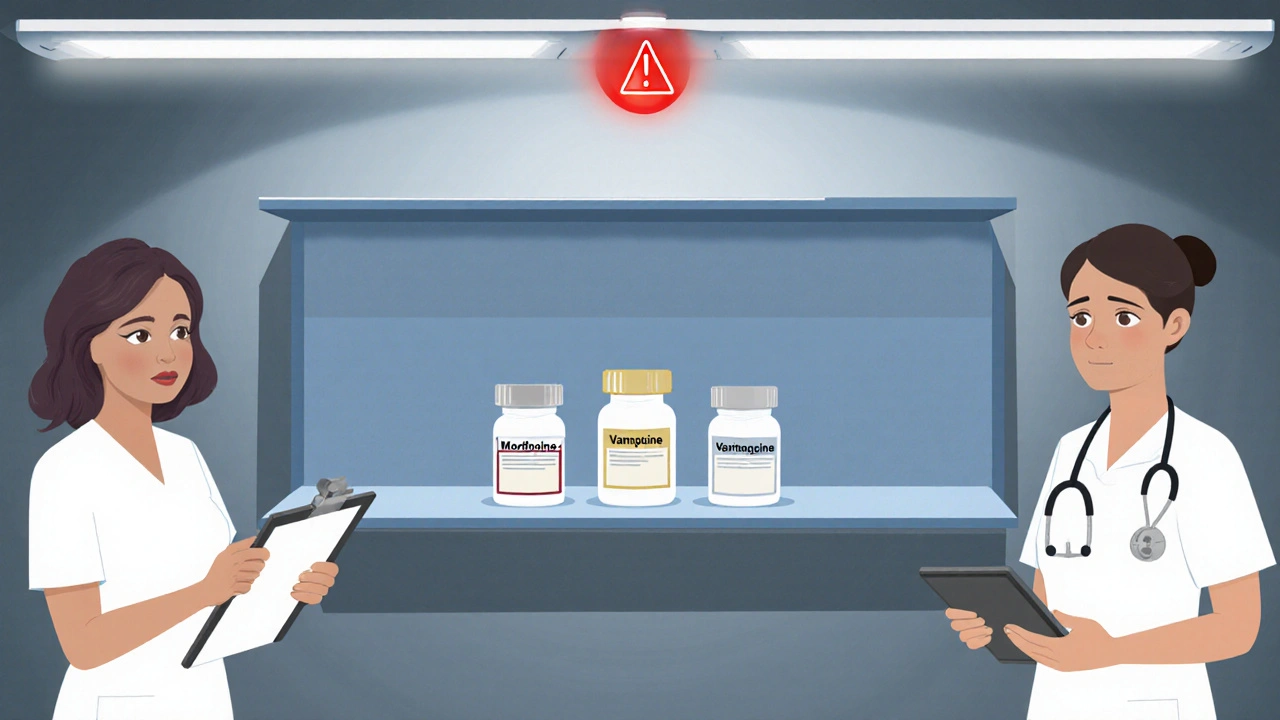Medication Shortages: What’s Causing Them and How to Cope
When your doctor prescribes a drug and the pharmacy says medication shortages are making it unavailable, it’s not just an inconvenience—it’s a health risk. Medication shortages, the temporary or prolonged lack of access to essential drugs due to manufacturing, supply, or regulatory issues. Also known as drug supply shortages, they can affect everything from antibiotics to heart meds and insulin. These aren’t rare glitches. They’ve become a steady part of modern healthcare, hitting patients, pharmacies, and hospitals hard.
Behind every shortage is a broken chain. Drug supply chain, the complex network of manufacturers, distributors, and regulators that moves drugs from factories to your medicine cabinet. It’s fragile. One factory shuts down for safety checks, and suddenly, a generic version of your blood pressure pill vanishes. Generic drug availability, the reliable supply of lower-cost versions of brand-name medications. is often the first to drop because manufacturers cut corners to save money—and then can’t keep up with demand. When a single plant makes 80% of a drug, a fire, a quality failure, or even a labor strike can ripple across the country. And when that happens, prescription delays, the time patients wait because their medication isn’t in stock. turn into weeks—or worse, months.
Some shortages are predictable. Antibiotics, chemotherapy drugs, and injectables are most at risk. Others sneak up. You might be fine one month, then find your thyroid med or asthma inhaler gone the next. It’s not just about cost—it’s about safety. Switching to an unfamiliar alternative can mean new side effects, wrong dosing, or even dangerous interactions. And when pharmacies run out, patients often turn to unreliable online sources, risking fake or contaminated pills.
What can you do? First, don’t panic. Talk to your doctor early if you notice your meds aren’t available. Ask about alternatives—sometimes another generic brand or a different drug in the same class works just as well. Keep a list of your meds, dosages, and why you take them. Call your pharmacy ahead of refills to check stock. And if you’re on a critical drug like insulin or heart medication, consider keeping a small emergency supply on hand, if your doctor approves.
The posts below show real cases where people faced these gaps—how garlic supplements can interfere with blood thinners when alternatives aren’t available, why switching asthma meds during pregnancy needs caution, and how laxative choices shift when one brand disappears. You’ll see how people managed when their go-to drugs vanished, what worked, what didn’t, and how to spot when a shortage might be coming your way.
